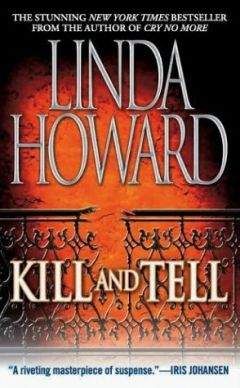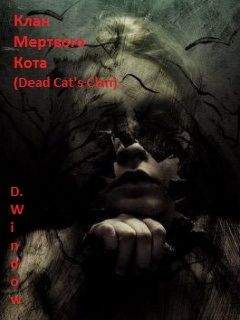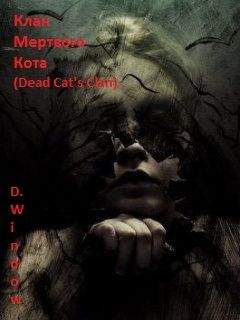Кроха - Dedication
Parking their police unit, Officers Brennan and Crowley got out and approached the open door, their hands poised near their holstered weapons. Joe watched from the bushes for only a moment and then he was off, scrambling up the oak to the roofs, streaking away home. Racing for a phone, to get the message to Brennan and Crowley before they cleared the house and left again. He wanted them to find the gun, not leave it there unguarded. He wanted them, in proper police procedure, to bag it at once, fresh with Tekla’s prints.
27
Dulcie, having been chauffeured home by Charlie—like an invalid, she thought irritably—woke much later warm and cozy curled in Wilma’s lap. It was late afternoon, the westering sun slanting in through the living room windows across Wilma’s cherry desk. How hard she had slept. She woke filled with strange dreams, though already they were fading. She tried to bring them back, but they had flown apart, vanishing into fragments. Why did dreams do that?
All that remained was the sense of danger, of Joe Grey’s fear. But now even that was fading—and as fear vanished, she was filled with Joe’s wild amusement. She could hear faintly from the dream the roar of a barking dog. She sat up, puzzled, kneading Wilma’s leg, pushing Wilma’s book aside.
Wilma stroked her, watching her. “What?” she said softly.
“A dog, a huge dog threatening Joe. A gun. And . . . Tekla. Tekla Bleak,” she said, hissing. “But now . . . Joe’s all right, it’s all right. He’s all right,” she said, purring. She looked into the fire that burned on the hearth, trying to sort out what she’d seen, what exactly had happened. As she reached for the dream again, trying to slip back into its shadows, faces and action overlapped into softer visions, and soon she dozed once more and Wilma returned to her book.
But then as she fell into sleep a brighter vision touched Dulcie, not a dream at all but something more alive and urgent shaking her awake, her heart pounding.
“It’s time,” she said, leaping down from Wilma’s lap. “Something’s happening, it’s time.”
“The kittens!” Wilma said, shoving her book aside and getting up.
“No,” Dulcie said, “not the kittens. It’s Misto.” She shivered, staring at Wilma. “It’s time to go to Misto.”
Wilma grabbed her purse, smothered the fire with ashes, found a jacket on the hook in the kitchen. She never questioned Dulcie’s perception. She picked Dulcie up gently and they were out the kitchen door into the bright afternoon, into the car, backing out. “What did you see? What did you dream?”
Dulcie snuggled close against her. “I was with Misto in another place, not Molena Point, not this world but a place so bright, larger than our world could ever be, the sky stretching away more huge than our sky and millions of miles of green hills rolling on and on and up into endlessness . . . And yet,” Dulcie said, “at the same moment we were in our own village, so tiny in those vast spaces. I can’t explain how that could be, we floated in eternity but still were in our own tiny village, and then . . . And then Misto and I were in the village library but the room, the book stacks, were dwarfed like a tiny jewel in endless space. We were looking through old, old books at pictures of my little calico, the way I dream of her, the way Misto describes her. We were looking at our girl kitten over the centuries. The same sweet face, sly and clever, the same faded calico markings and dark swirling stripes, and her little soft paws.
“There she was in those ancient tapestries and books, in lives so many generations gone. There, in one century and then another, born to different times, though Misto said she will remember little of those lives. But now,” she said, “he has shown her to me for the last time. Now Misto himself is going home. My dream of Courtney is his parting gift.”
Slowing the car, Wilma turned onto the Firettis’ street. She felt cold, her hands shaking. Parking before the cottage, she lifted Dulcie as if, Dulcie thought, she were as frail as porcelain. Contritely Dulcie leaped from Wilma’s arms into the fern bed by the Firettis’ front door, the fronds soft beneath her tummy and paws. She waited as Wilma knocked, both strung tight with heartbreak—but both would smile and comfort Misto. They would offer only brightness to the old cat, would lay only love before the venerable cat they so treasured.
In much the same way that Dulcie knew Misto needed her, Kit looked up suddenly from hunting gophers in Lucinda’s garden. She had come home from MPPD alone, abandoned by Joe, left on her own by Dulcie and Ryan and Charlie; had padded home feeling lonely and not sufficiently praised for finding and retrieving the evidence of shoes; had padded home to her empty house, to hunt alone in her empty garden. But now suddenly she turned from the gopher hole, startled. She listened. She sat very still looking away across the village, hearing in her thoughts a bright whisper. She felt awash suddenly in brilliance. Joy filled her, a need filled her, the old cat was calling to her . . .
She was distracted suddenly as the gopher stuck his head out. She grabbed and killed it all in a second, in a fast reflex, and then she bolted away, left the dead gopher lying limp and forgotten. The old cat was calling her. She raced away through neighbors’ gardens and up to the roofs and down and down across the shingles and peaks of cottages and shops, hurrying, sprinting for the Firettis’ cottage.
But Joe Grey, bolting home from the Bleaks’ empty rental, was driven by another mission. Still smiling at his well-timed escape from the Rottweiler, he leaped into his tower and through it onto the high rafter and dropped down onto Clyde’s desk. From the love seat Snowball looked up at him sleepily. She was alone; likely Rock was with Ryan. The little white cat yawned, watching him paw at a pile of papers. Finding his cell phone he punched in the one digit for Max Harper. He waited only two rings.
“Harper,” the chief said shortly.
“The Bleaks have skipped. Left town in another car, a small brown SUV. Clothes, suitcases, maps, like they’re set to travel. I didn’t get a good look at the car, can’t tell you the make, couldn’t see the license. It was in that little garage where they were renting, it was gone when your officers got there. If they’re still there,” Joe said, “there’s a gun in the bedroom, under the armoire. A loaded automatic, in a gun case. Get it out before the damned dog—”
“They have the gun,” Max said, amused. “The dog did find it, but he couldn’t get his nose under.” Max was silent, then, “We lifted a couple of pretty good prints, good match for Tekla’s. We’ve sent the gun to the lab.”
Once again Joe smiled to hear that Max was confiding in him. This whole situation was different from past cases. But there was something else that he hadn’t yet told Max. “There’s a second gun in Tekla’s suitcase. A big, stainless steel revolver. I couldn’t get a good look to tell what make.”
But it was the automatic that was the real evidence. If the riflings on it matched the bullet that killed Ben, they’d have the Bleaks cold. Have evidence far more telling than a notebook and phone and torn pieces from a mouse nest.
And yet now, even after Max had thanked him and they’d ended the call, Joe had an edgy, “something waiting in the background” feeling, as if something were yet to happen. He looked down at Snowball, who was deeply asleep again. He listened to the hollowness of the empty house. He stared away to the east of the village where Ocean Avenue met Highway One, where the Bleaks would have escaped—and suddenly he was out of there, leaping nervously from the desk to the rafter.
With a sudden sure sense of what was wrong, he was through his tower onto the shingles, streaking away across the roofs of the village plaza and the cottages and shops beyond. Heading not toward the tangle of highways where the Bleaks would be speeding, where no cat could ever catch them. Heading for Firetti’s Veterinary Clinic, led strongly now by the same urgency that had called Dulcie and had summoned Kit.
In the Firetti bedroom, the old cat didn’t sleep. He was not, this day, feeling exhausted; he was not drugged by medication. He had had no pain shots since the night before, nor did he want them. His body was in a transition that he knew well.
Though he was weak, he had put his failing aside, had found a new temporary strength. He sat tall on the bed, snuggled all around by his furry entourage, by Kit and Pan and Dulcie, and now Joe Grey as the tomcat slipped in across the room and up on the bed to join them. In Joe’s eyes there was sadness, there was hurt at what was to come.
The cats heard Wilma’s and Mary’s voices from the living room, but the two women didn’t enter. They heard the fire crackle to life and sensed its warmth. The old cat looked at each of them and smiled. He put a paw on the paw of his son Pan, his constant companion these last days. He looked at Kit. “You found shoes,” he said, smiling. “You hauled all that evidence across the yards and hid it for Captain Harper to find.”
Kit beamed.
He looked at Joe and the old cat shook his head. “That Rottweiler could have eaten you in one gulp, tomcat.”
Joe’s eyes widened. The venerable cat’s omniscience unnerved him.
“You did well, Joe Grey. But you’ll soon be a father.” He gave Joe a stern look but said no more. Smiling at Joe, he turned to Dulcie.
“You have another poem in your head, my dear. So much goes on, within. Even as you nurture your kittens, that clear voice nudges you. Those words want life, too. Your verses want to taketheir place in this world. Will you tell us this one?”
“A little of it,” Dulcie shyly. “Just a little . . .”
Duchess of the garbage can
Queen of the alley
Lolling under dustbins
Rolling fat and jolly
No thin beggar, never shy
This lady dines most royally
Fine salami, leftover Brie
Scraps of salmon from the sea
She is beautifully obese
Who feasts on kippers and roast geese
Queen of the garbage can
Duchess of the alley
Accepting largesse with greed
Rolling fat and jolly.
Her words made Misto laugh. “Your children will grow up on poetry,” he told her. “Poetry and,” he said, looking at Joe Grey, “maybe on cop work, too.”
The old cat settled back, and he told them a final tale. He held close his guardians of love. They waited together for his final moment, for the instant when he would step away from them into his next great journey. Misto painted for them, now, realms he would again travel; he gave them views down upon the earth, deep into ancient lands as if those times were again alive. He showed Joe and Dulcie moments from their kittens’ own pasts, each experience a tangle of puzzles.
Slyly Misto showed Joe Grey the tomcat’s past lives that Joe did not remember and didn’t want to remember. At Joe’s dismay, Misto laughed.
To Joe, those faraway moments, if they had ever really existed, were gone and done, not part of life here and now. Life was in the moment and that was as it should be.
But for Dulcie and Kit and Pan, the glimpses Misto gave them into kinder realms beyond earthly evil, that promise was a valued gift, and the cats reached their paws close around him. They held Misto, snuggled with him as he dozed in a light and easy sleep. It was later in the small hours of morning that they woke.
28
Misto died before dawn. It was just after four, the witching hour, the hour when restless human sleepers wake filled with unsettling thoughts, when restless felines rise and stretch bright eyed and hit the bedroom floor or the cold ground, ready to prowl, that secret and exciting hour that all cats welcome, knowing adventure waits.
Misto woke fully from last night’s gentle sleep. Beside him, Pan and Kit and Joe and Dulcie still slept, deep under, curled close around him. Misto smiled at the dear cats, guardians of his frail body and of his restless spirit. John and Mary lay on the bed dozing near them, but when Misto woke, they woke. All four cats woke, startled.
It was time.
Misto lifted his head and looked at John; his look said the pain had returned and it was very bad. His look said that now he wanted help. It was time.
John Firetti rose, and with care and tenderness he prepared the shot that would bring a cessation of pain, that would bring peace. Tenderly he administered the medication and, leaning down, he kissed Misto’s forehead and ears. Mary leaned close over the other cats, kissing Misto’s face.
In seconds he was gone.
Now, in this world, Misto slept deep and forever, but beyond this world a brightness glowed. They all could see it, they watched Misto’s spirit rise up, they could feel his passing, they saw his golden form as delicate as gauze above them. He was, for a moment, a clear light above them, and then he was gone. To another place.
They sat with him for some time. No one moved or spoke. From far away they felt his spirit caress them, and an echo of his thoughts drifted back to them: Do not grieve, I am with you. You have lives to live, wrongs to right before you complete your journey. You have kittens to raise,his voice said with a smile, before you move on to the next adventure.
As dawn began to color the sky, John and Mary rose. They fetched the little casket that John had prepared, with its carved designs of flowers and trees and its silk liner. They laid Misto within, and John said a prayer for him.
In the living room Wilma rose from the couch where she had dozed. They carried Misto in his small casket to his resting place, which Mary had prepared in the garden. The morning was chill, barely light, the sky streaked with trails of dark clouds and the first hints of sunrise shining through; it was the kind of morning Misto liked best.
The humans knelt. John uncovered the grave he had dug, set among its five granite boulders. The cats crept close and sat quietly. It was then that Kate appeared and, behind her, silent and close together, came Ryan and Clyde, and Charlie. Ryan took Wilma’s hand. Both wiped away tears.
John laid Misto’s casket in the flower-lined grave between the granite boulders. They patted the earth down, each hand and each paw adding a benediction.
When the grave was covered, each mourner said a few words, then Mary planted primroses over the little mound. As they turned away, weeping, in Dulcie’s head the words of a poem began. The first few words of an ode to Misto, a bright caress that would be a long time in the making, but would speak for all of them.
Golden spirit, you reach down
Your ghostly paw to touch the earth you love
To touch the sea
To stroke the lakes and rivers . . .
29
It was later that morning that Max Harper received a third call on the BOL for Tekla and Sam Bleak. All three reports were from California Highway Patrol. Max hadn’t had much description to put out, no make or model, no year, no license number. Just an older brown SUV, faded and dirty. One responder thought it might be an older Chevy. None caught the license number, the plates were smeared with dirt. In one response the car carried three occupants. In the others, only two people were visible. It annoyed him that the snitch hadn’t gotten a better handle on the car, hadn’t found a way to follow it. But then, Max hadn’t been there to witness the action; maybe the car had vanished too fast. The positive part was, in all three calls the car was moving east, heading now through Nevada.




